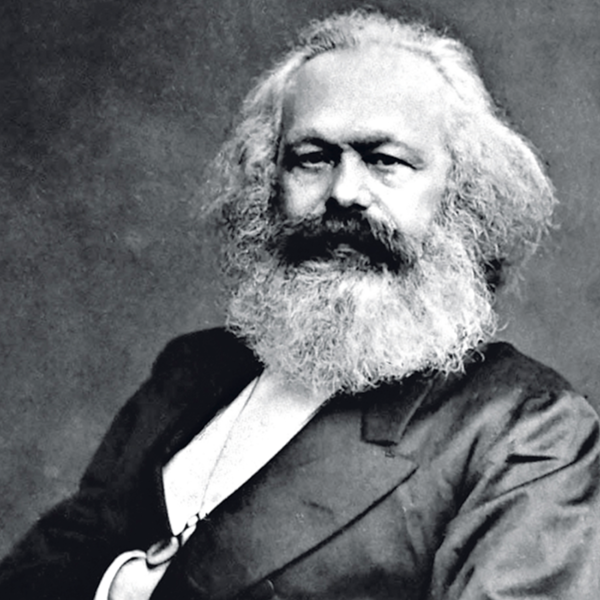Karl Marx has been laid to rest in Highgate Cemetery for over 140 years, but his ideas continue to resonate powerfully, particularly during times of capitalist crisis. As global capitalism faces increasing turmoil, the specter of communism, long feared by the ruling class, is once again emerging as a potent force. The persistent relevance of Marx’s thought is unmistakable, especially on this day, March 14, which marks the 140th anniversary of his passing.
Though the capitalist class believed that Marx’s ideas were buried along with him, the enduring appeal of communism is a source of concern for many within the bourgeoisie. This concern has grown more acute in the years since the global financial crisis of 2008, which represented the onset of one of the most profound crises in capitalism’s history. The economic instability that followed has cast doubt on the system’s ability to provide for the masses, particularly for younger generations who have grown up witnessing nothing but economic turmoil, inequality, austerity, and climate disasters.

For those under the age of 35, the post-2008 world has been one marked by economic stagnation and an increasingly stark divide between the rich and the poor. While a select few have accumulated unimaginable wealth, the vast majority are struggling to make ends meet. From 1978 to 2020, CEO salaries grew by an astounding 1,322%, while in Britain alone, the number of people living in poverty is expected to rise from 11 million to 14 million, including nearly a third of all children.
Given these developments, it is little wonder that confidence in capitalism has eroded, particularly among younger generations. A recent poll conducted by the Fraser Institute, a bourgeois think tank, highlighted this trend. The survey, which included respondents from the United Kingdom, the United States, Canada, and Australia, revealed that 29% of young people in Britain viewed communism as the ideal economic system, while in the U.S. and Australia, this figure stood at 20%. The pollsters found these results “disturbing,” yet for those seeking an alternative to the failings of capitalism, the appeal of communism is entirely understandable.
Among Britons aged 25 to 34, support for communism is even more pronounced, with 32% of respondents expressing favorable views toward the system. This equates to approximately 4.5 million people in the UK who identify with communist ideals—a number that reflects the growing dissatisfaction with the current socio-economic order. It is a clear indication that Marx’s ideas, far from being out of date, are more relevant than ever.
The ruling class is understandably alarmed by the resurgence of Marxist ideas. For decades, they have sought to discredit Marxism, portraying it as an outdated and discredited ideology. However, their efforts have largely failed. Instead, millions of people now view socialism and revolution as not only possible but necessary responses to the deepening crises of capitalism. As Marx famously remarked, when an idea grips the minds of the masses, it becomes a material force—and this is precisely what is happening today.
Marx’s theory of crisis, once dismissed by his critics, is now being borne out in the realities of the global economy. Marx explained that capitalism’s inherent contradictions would lead to an accumulation of wealth at one pole and increasing misery and suffering at the other. This is precisely the situation we find ourselves in today, as the richest 1% continue to accumulate wealth while the rest of society faces declining living standards, insecurity, and stress.
The current crisis of capitalism, coupled with the widening gulf between the classes, leaves no doubt that Marx’s analysis was correct. The capitalist system, as Marx foresaw, is increasingly unable to provide for the needs of the majority, and its contradictions are becoming more and more apparent. Marx understood that capitalism, by its very nature, creates the conditions for its own downfall. As the productive forces of society outgrow the constraints of private ownership, the contradictions within the system intensify, paving the way for social revolution.
Even among some of the more serious bourgeois commentators, there is a grudging acknowledgment of the validity of Marx’s critique. Martin Wolf, chief economics commentator for the Financial Times, recently published a book titled The Crisis of Democratic Capitalism, in which he laments the crises facing both capitalism and bourgeois democracy. Wolf concedes that capitalism, as Marx rightly observed, tends toward monopoly, as capitalists inevitably seek to manipulate markets in their favor. However, what commentators like Wolf cannot admit is that these crises are not anomalies but intrinsic features of the capitalist system itself.
As Marx explained, the tendency toward monopoly and the elimination of competition marks the beginning of the end for capitalism. Today, the global economy is dominated by a handful of multinational corporations, whose relentless pursuit of profit exacerbates economic crises, fuels wars, and sparks revolutionary movements around the world.
Revolutionary upheavals are on the horizon, both in Britain and internationally. The instability of the global capitalist system, combined with the reawakening of the working class, sets the stage for major struggles. The revolutionary spirit that is emerging among the youth will soon spread to broader sections of society. The communist vision of a society based on the emancipation of the working class is not a distant dream; it is an achievable goal, provided that we can build a revolutionary party based on the ideas of Marxism, just as the Bolsheviks did in the lead-up to the Russian Revolution of 1917.
The task before us is not to reform capitalism or seek a middle ground between socialism and capitalism, but to overthrow the capitalist system entirely. As the founders of scientific socialism declared in the Communist Manifesto, there is no middle road. The communists are coming, and with the lessons of Marx and the revolutionary movements of the past to guide us, we have a world to win.


